Yesterday morning, the noise was so loud I had to gather Chet up and go see what was going on.
We worked our way down through our woods and to our border with the neighbor.
There were cattle in the woods. Why do people put cattle in woods?
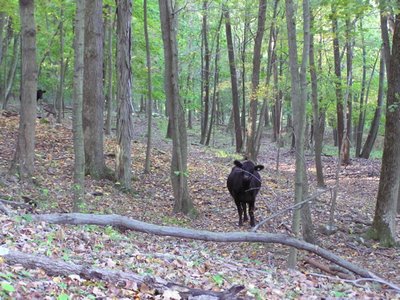 There's really nothing for them to eat, and it's full of white snakeroot (known locally as locoweed, which can kill them). Still, they looked neat, like big old black bears stepping softly through the trees. They came to check us out, and blow their fragrant breath at Chet. I was proud of the wee dogge. He trembled, but never barked or growled, and he sat quietly and observed the cattle, and left willingly when I asked.
There's really nothing for them to eat, and it's full of white snakeroot (known locally as locoweed, which can kill them). Still, they looked neat, like big old black bears stepping softly through the trees. They came to check us out, and blow their fragrant breath at Chet. I was proud of the wee dogge. He trembled, but never barked or growled, and he sat quietly and observed the cattle, and left willingly when I asked.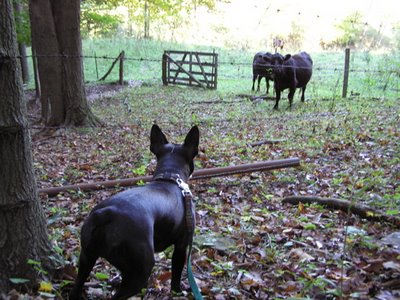 My goal is to cool him down about cattle, so he doesn't feel the need to head 'em up and move 'em out whenever he encounters them. Or to get his head caved in by a quick kick.
My goal is to cool him down about cattle, so he doesn't feel the need to head 'em up and move 'em out whenever he encounters them. Or to get his head caved in by a quick kick.From our border, we couldn't see the loggers, but the noise was overwhelming. As we turned to leave, a huge tree came down with the awful sound of hundreds of years of growing-- dying. I turned and raised my fists. RAPISTS!! I shouted, as loudly as I could. The only answer was the brup-brup ROWWWWWLLLL of the saw.
It's stupid and juvenile of me to rail against the time-honored southern Ohio way of making your land work for you. You wait until the timber gets some size, then you cut it down, taking all the biggest trees. Or maybe you completely clear it, and put cattle on it, to cut their zig-zagged trails deep into its flanks. The hillsides slump down, the mud chokes the streams, you sell the beef in the fall. That's how it works here, on all but a handful of farms where the farmers are sensitive to overgrazing and erosion. Like Jeff and Jay's, like Rusty's.
I work my land, too, in a much different way, and nobody calls me names. Well, at least not to my face. As I turned to go up the hill toward our old orchard, a big stand of great lobelia glimmered in a perched wetland.
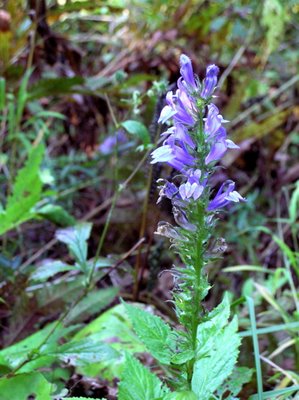
A female great spangled fritillary took the morning sun.
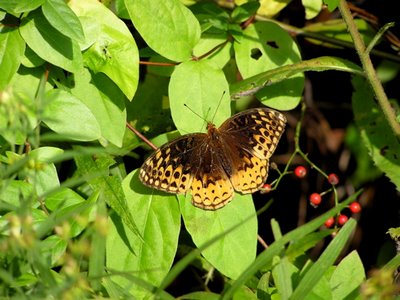
And a great ash sphinx cut holes in the leaves of a white ash.
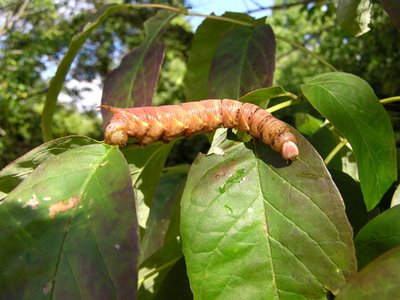






0 comments:
Post a Comment